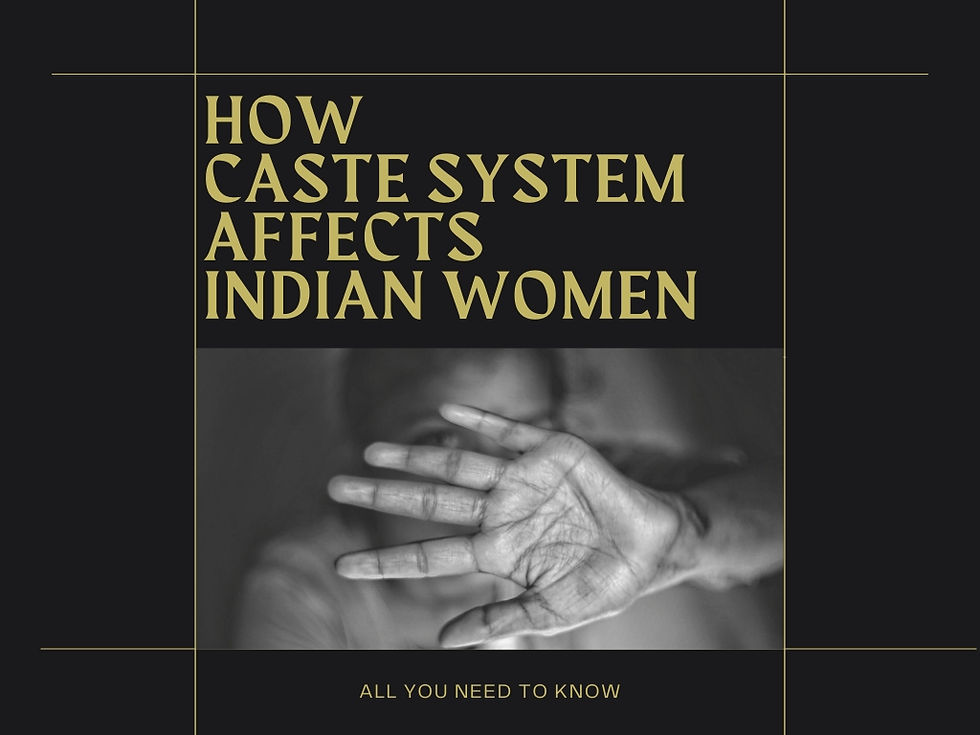Educational Module Series- Module 6
- GirlUp Constitution

- Feb 6, 2020
- 2 min read
POLICY ANALYSIS - THE TRIPLE TALAQ ACT 2019
by Jasmine Sidana

The Muslim Women (Protection of Rights on Marriage) 2019 was introduced in Lok Sabha by the Minister of Law and Justice on June 21, 2019. The bill was first introduced in December 2017. After the dissolution of 16th Lok Sabha, the bill was reintroduced in the lower house in 2019 and got passed in both the houses in July 2019. The stated intent of the Act is to protect the rights of married Muslim women and to prohibit divorce by pronouncing talaq by their husbands. The Supreme court in August 2017 declared instant Triple Talaq as unconstitutional and a divorce pronounced by uttering talaq three times in one sitting is void and illegal. And hence asked the Centre to bring legislation on the same.
The Act makes all declaration of talaq, including in written or electronic form, to be void and illegal. It defines Talaq as Talaq-e-biddat, which refers to the practice under Muslim personal laws where pronouncement of the word ‘talaq’ thrice in one sitting by a Muslim man to his wife results in an instant and irrevocable divorce. The law also declares whoever pronounces such a talaq shall be punished with imprisonment for a term up to three years with fine and the offence would be cognizable. Apprehensions have been raised over the cognizable nature of the instant triple talaq saying that it provides ground for misuse against Muslim men since the police now needs no warrant to arrest a Muslim man providing the basis of triple talaq which is to say the Muslim men could be jailed for uttering a word that holds no legal value.
According to the Act, the Magistrate may grant bail to the accused only if there are reasonable grounds for granting bail after hearing the said woman. And the two sides can also agree to stop legal proceedings and settle the dispute. However, T&C of compounding will be determined by the magistrate. The Act goes ahead to talk about ‘subsistence allowance’, which is to say that the said Muslim woman is entitled to seek subsistence allowance and custody of her minor children from her husband. Opposition questions the Act in the light of supreme court’s judgement which declares that the pronouncement of talaq doesn’t end the marriage and this act allows to follow procedures done after the divorce in a scenario when the divorce never happened.
The government says triple talaq is a historical wrong done to the Muslim women and an act which aims at the protection of these women is a victory of gender justice, dignity & equality. The government believes this will give courage to Muslim women who have suffered in the past due to triple talaq and that its abolishment will empower them. However, opposition says the dignity of married Muslim women was already restored by Supreme court’s judgement and that the Act doesn’t provide any form of additional protection to Muslim women. The government continues to defend the Act as a preventive measure against exploitation done by Muslim men on their wives.





Comments